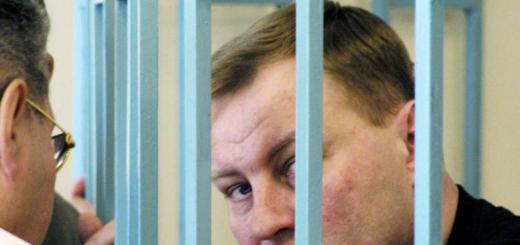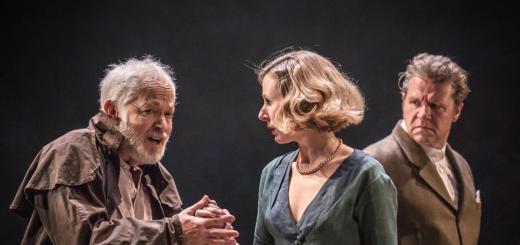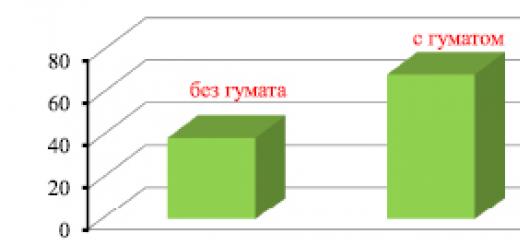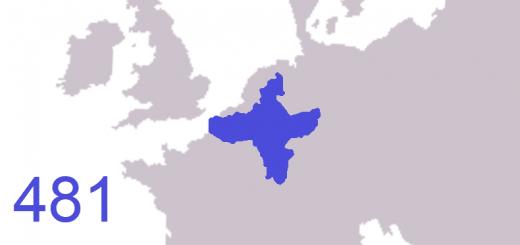Yuri Budanov is a former Russian army colonel and commander of the 160th Tank Regiment, who participated in two Chechen wars. During the Second Chechen War, he kidnapped and killed 18-year-old Chechen Elsa Kungaeva. In July 2003, the court sentenced Budanov to 10 years in prison and stripped him of the rank of colonel and the Order of Courage. Having been released on parole in January 2009, Budanov was soon killed by a native of Chechnya Yusup Temerkhanov.
Biography
Yuri Budanov was born on November 24, 1963 in the city of Khartsyzsk, Donetsk region (Ukrainian SSR). After graduating from the Kharkov Tank School, he served in Hungary (until 1990), and then in Belarus and Buryatia.
In January 1995, in Chechnya, due to a landmine explosion, he received a brain concussion with a short-term loss of consciousness.
In 1998, he was appointed commander of the 160th Guards Tank Regiment.
In October and November 1999, when a shell exploded and when firing at a tank from a grenade launcher, he twice suffered brain contusions.
In 1999, he graduated in absentia from the Academy of Armored Forces named after. Marshal Malinovsky.
He received the rank of “colonel” ahead of schedule, in January 2000, during the counter-terrorist operation in Chechnya.
Criminal case
On March 27, 2000, near the village of Tangi-Chu, Yuri Budanov was taken into custody on charges of kidnapping, rape and murder of Elsa Kungaeva.
In February 2001, hearings began on Budanov's case.
Investigation
On July 3, 2002, instead of passing a verdict, the court decided to order the next examination.
A total of four examinations were carried out. The first was carried out by military experts in Novocherkassk, on an outpatient basis, and found the colonel sane on all counts. The second one took place in the same place, only in the hospital. The third examination was carried out by doctors from the Serbsky State Center for Forensic Psychiatry. Yuri Budanov, judging by their conclusion, was insane at the time of the crime, and the court could have released the colonel from custody on this basis.
On November 18, 2002, the materials of the repeated comprehensive psychological and psychiatric examination of Colonel Budanov were again sent to the military court of the North Caucasus District in Rostov-on-Don.
On December 31, 2002, he was declared insane at the time of the murder of Chechen Elza Kungaeva and was sent for compulsory treatment to a psychiatric hospital (exempt from criminal liability).
Sentence
On July 25, 2003, the North Caucasus Military District court sentenced Budanov to 10 years in prison in a maximum security colony. He was found guilty of all three charges against him - kidnapping, murder and abuse of power. The court found Budanov sane and deprived the defendant of the military rank of colonel and the state award “Order of Courage.” He is also prohibited from holding leadership positions for a period of 3 years.
Imprisonment
In May 2004, Yuri Budanov, who was serving a sentence in a prison in the Ulyanovsk region, filed a petition for pardon.
On September 15, 2004, the Pardon Commission of the Ulyanovsk Region granted the petition for pardon of Yuri Budanov, deciding to release him not only from serving the main sentence, but also from additional ones. Thus, it was decided to return his military rank and military awards. Despite the protests of the regional prosecutor's office, the governor of the Ulyanovsk region, Vladimir Shamanov (former commander of the Russian Federation General Forces in Chechnya), signed a petition to pardon Budanov.
The commission's decision to pardon Budanov caused a mixed reaction from the Russian public. A number of politicians have spoken out both for and against the pardon. At the same time, the possibility of pardoning Budanov caused negative responses from human rights organizations, as well as residents of Chechnya. On September 21, 2004, a protest rally of many thousands took place in Grozny against the pardon of Budanov, and the first deputy prime minister of the Chechen government, Ramzan Kadyrov, made open threats against Budanov. “If this pardon of Budanov occurs, we will find an opportunity to give him what he deserves,” he said.
On September 21, 2004, Yuri Budanov withdrew his request for pardon. The Pardon Commission of the Ulyanovsk Region satisfied Budanov's application to withdraw his petition for pardon.
During the period from 2004 to 2008, Budanov applied for parole three times, and once again the administration of colony No. 3 in Dimitrovgrad, Ulyanovsk region, where Budanov was serving his sentence, applied for his parole. However, the Dimitrovgrad court found no grounds for his early release.
Release to freedom
On December 24, 2008, the city court of Dimitrovgrad (Ulyanovsk region) granted Yuri Budanov’s next request for parole. Court representative Liliya Nizamova told reporters that “the court decided to reduce the term of detention in the colony for Yuri Budanov by one year, three months and two days.”
Two cassation appeals by the Kungaev family's lawyer, Stanislav Markelov, dated January 12 and 15, 2009, protesting the decision to release Budanov on parole, were rejected by the court.
On January 15, 2008, the decision of the Dimitrovgrad City Court on the parole of Yuri Budanov from the colony came into force.
Murder of Stanislav Markelov
Three days later, on January 19, 2009, the Kungaev family lawyer Stanislav Markelov was shot in the back of the head, shortly after taking part in a press conference at the Independent Press Center on Prechistenka (Moscow) dedicated to the early release of former Colonel Yuri Budanov . Anastasia Baburova, a student of the Faculty of Journalism at Moscow State University and a journalist for Novaya Gazeta who accompanied Markelov, received a gunshot wound to the head and died in the hospital on the same day.
Protests in Chechnya
On January 13, 2009, commenting on the court decision to release Yuri Budanov on parole, the President of the Chechen Republic Ramzan Kadyrov said that he did not believe in his repentance. “Even if he repented, someone convicted of such a daring and cynical murder of an innocent minor schoolgirl should not be subject to parole. Moreover, he deserves a more severe punishment,”- said Ramzan Kadyrov. According to the Chechen president, Budanov's release on parole means that "in his person all war criminals will be acquitted."
"Budanov is a schizophrenic and a murderer, a recognized enemy of the Chechen people, - said the President of Chechnya in an interview with the Regnum agency. - He insulted our people. Every man, woman and child believes that as long as Budanov exists, the shame has not been removed from us. He insulted the honor of Russian officers. How can you protect it? What judge could release him? Behind him are dozens of human lives. I think the federal center will make the right decision - he will be put in prison for life. And this is not enough for him. But a life sentence will at least ease our suffering a little. We do not tolerate insults. If a decision is not made, the consequences will be bad.".
Details of the circumstances of the murder of Yuri Budanov, the investigation and the course of the trial can be found in the material of the "Caucasian Knot" Murder of Yuri Budanov.
Murder in Moscow
On June 10, 2010, Yuri Budanov was killed with four shots to the head in Moscow, on Komsomolsky Prospekt, near house No. 38/16.
In the following days, representatives of Russian nationalist organizations, the LDPR, former colleagues of Budanov and football fans laid flowers at the site of Budanov’s death and at his grave. Nationalist rallies were held in his memory in different cities of Russia.
On August 26, 2011, a native of the Chechen Republic, Yusup Temerkhanov (who lived in Moscow under the name Magomed Suleymanov), was arrested on charges of murdering Budanov. Temerkhanov was charged with Articles 105 (murder) and 222 (illegal possession of weapons) of the Russian Criminal Code.
On December 3, 2012, the trial for the murder of Yuri Budanov began in the Moscow City Court. On the same day, Temerkhanov's lawyer, Murad Musaev, told the "Caucasian Knot" correspondent that his client does not admit guilt. “Yusup Temerkhanov does not admit his guilt, he was kidnapped and tortured. Even then he did not testify admitting guilt.”- said Musaev.
Family status
Yuri Budanov was married and had a son and daughter.
Budanov Yuri Dmitrievich is a Russian military serviceman. He took part in many military operations. During the Second Chechen Campaign he led a tank regiment and held the rank of colonel. His life was short-lived. At first he was convicted of committing a brutal crime, and after his release he was shot on one of the streets of Moscow.
Yuri Budanov: biography
Place and date of birth of Budanov Yuri: Ukrainian Republic, Donetsk region, city of Khartsyzsk, November 24, 1963. He grew up as an active child, was fond of martial arts, and mastered sambo techniques. Born into a military family, Yuri followed in his father's footsteps. He dreamed of a military career.
In 1981, he was called up for military service. After completing his service, Budanov decided to continue his studies in military affairs, not imagining himself in another profession. He decided for himself that he was not created for a peaceful life. The young man entered the Kharkov Guards Higher Tank Command School, which he graduated from in 1987. After receiving his education, he served in Buryatia, Hungary and Belarus. Yuri returned to the Russian Federation after the collapse of the Soviet Union, not wanting to stay in a foreign country.
The biography of Yuri Budanov is quite interesting, because he devoted almost his entire life to military service. Returning to Russia, this man continued his military career in Transbaikalia. He had an ideal reputation and had no complaints. Here he stayed for ten years. During this time, Yuri Dmitrievich graduated from the military academy and received the rank of lieutenant colonel. Later Yuri Budanov served in Chechnya.
Military service in the Chechen Republic
There have been numerous disputes about whether Yuri participated in the First Chechen Campaign. The fact is that the documents with which this fact can be confirmed have disappeared. According to some reports, it became known that the serviceman destroyed them himself. And he really had a reason for this. Knowing about the shell shock, the medical commission simply would not have allowed him to take part in the Second Chechen War. Journalists carefully studied the biography of Yuri Budanov and found out that he took an active part in the First Chechen War and was even seriously injured. The second Chechen campaign also did not spare the military. He was shell-shocked three times due to wounds.
Budanov's feat
Many people who knew Yuri Budanov consider him a real hero. To some extent this is true. At the end of 1999, a reconnaissance group led by Shtykov fell into a trap. The militants were able to deceive the Russian military, sending them down the wrong path. As a result, help came to a completely different place. The tank battalion located in Yuri Dmitrievich’s regiment was able to help the reconnaissance group. In this case, about fifty people died, and military equipment was lost. Other troops were unable to quickly find their bearings and come to the rescue due to bad weather conditions.
The serviceman made an independent decision to save the reconnaissance group; he did not receive orders from above. For this, the colonel was reprimanded, but a little later he was awarded the medal “For Courage.”
End of career
On March 26, 2000, the irreparable happened. This date became fatal in the life of the hero of our article. To find out why Yuri Budanov was convicted, you need to consider the events that preceded it. It was on this day that the colonel’s daughter was born. He decided to celebrate this significant event with his colleagues. Alcoholic drinks made their presence felt.

Drunk servicemen came up with the idea of shelling a village where civilians lived. But not all participants in the drinking party agreed with this decision. And then Colonel Budanov decided to get even with the girl who was suspected of being a sniper. This girl's name was Elsa Kungaeva. She was Chechen and barely 18 years old. It was on this day that the colonel put an end to his impeccable career with his own hands.
Details of the crime
Colonel Budanov, being intoxicated, gave an order to his subordinates to bring the girl to him. The soldiers, arriving in the village, forcibly pulled Elsa out of the house and brought her to headquarters. Budanov personally interrogated Kungaeva. The interrogation lasted several hours. The colonel used physical force on the girl. As a result of such interrogation using violent actions, the girl was strangled. Moreover, her neck was broken. After Elsa's death, her body was handed over to the soldiers, who in turn abused it. Later, a forensic medical examination, examining the girl’s body, confirmed the fact of rape.
Detention of Colonel Budanov
After the crime became known to the public, the colonel was taken into custody. The arrest took place on March 27, the day after the murder was committed. At one point, the hero Budanov turned into a brutal killer. Initially, he was charged not only with murder, but also with rape. The rape article was later dropped. It turned out that the violent actions against the deceased were carried out by soldier Egorov.
A noisy and lengthy trial began. The prosecution spoke about three crimes committed by the colonel: kidnapping, murder and abuse of power.
Consequence
During the investigation, Budanov was interrogated several times. Each time he repeated the same version of what happened. The story of Yuri Budanov was known not only to the investigator, but also to his cellmates. According to the colonel, during interrogation Elsa Kungaeva confessed to the charges against her. She said that she hated Russian military personnel.
Knowing that the girl’s father kept firearms in his house, all family members were placed under military surveillance. As a result, it turned out that Elsa Kungaeva periodically goes to the mountains. As a result of the established surveillance, it was possible to find out that the young girl is a professional sniper and is fighting on the side of the militants.

Having received a confession from Elsa, Colonel Budanov decided to hand the girl over to the soldiers for custody. According to Yuri Dmitrievich, the temperature in the room was high and he, taking off the upper part of his military uniform, put his service weapon on the table. The girl, grabbing the colonel's pistol, tried to shoot it. A struggle began, and in a state of passion, Budanov strangled the suspect. Yuri claimed that the murder he committed was unintentional. He explained his deranged state by saying that Kungaeva threatened to find his newborn daughter and kill her. He repeated her cruel words that she would wrap the child's intestines around a machine gun.
The soldiers claimed that they buried the girl's body immediately after she was killed. But forensic medical examination said otherwise. During the exhumation process, it turned out that the girl was subjected to severe beatings and rape during her lifetime. Moreover, it turned out that at the time of her burial, she was still alive.
The case of Yuri Dmitrievich Budanov received a wide public response. There were defenders and opponents of the colonel. The investigation into the case of Yuri Budanov lasted three years. In 2002, he was declared insane. The court took into account the shell shock that preceded the crime. The examination indicated that such injuries easily explain the condition of the combat officer. They could provoke a loss of control over consciousness. Compulsory treatment in the clinic was expected. But a little later the court decision was annulled.
The Supreme Court of the Russian Federation issued a verdict in July 2003. The court's decision was disappointing. Budanov Yuri Dmitrievich was sentenced to imprisonment for a period of 10 years. He was sent to serve his sentence in a maximum security colony in the city of Dimitrovgrad, Ulyanovsk region. Moreover, Yuri was stripped of all military ranks and awards. A decision was also made to ban him from holding leadership positions for three years.
Why was Yuri Budanov convicted? The verdict was imposed on all three counts brought by the prosecutor.
Prison term
While serving his sentence, the former colonel repeatedly submitted petitions to mitigate his fate. The first petition was sent to the President of the Russian Federation Vladimir Putin. Due to the fact that the case of Yuri Budanov gained international resonance, he withdrew the petition.
The President of the Chechen Republic Kadyrov declared the officer an enemy of the Chechen people. He accused him of cruelty and inhumanity.

A little later, Budanov applied for pardon again. After which the commission agreed to return to Yuri his awards, deserved with blood. But the matter turned into public discontent, after which the petition was rejected.
The next petition was submitted in 2007. The result was negative. A year later, the court made a positive decision, and the former military man’s sentence was reduced. At the beginning of 2009, Yuri Dmitrievich Budanov was released from custody. He served almost the entire sentence.
New life for a former military man
Having received the long-awaited freedom, Yuri returned to his family. His father had a serious illness. He died shortly after his son returned from prison. Budanov was given housing and a good job. He started life again. But everything turned out to be not so simple. Yuri was charged with a new one. Civilians in the Chechen Republic began to claim that the former military man was involved in the kidnapping and murder of eighteen more people. A criminal case was opened and the investigation began again. However, Budanov’s involvement in the crimes was not confirmed. All charges were dropped.
Murder of Yuri Budanov
The family of Yuri Budanov consisted of four people: Yuri, his wife, son Valery and daughter Ekaterina. At the time of the death of the former military man, his son was already an adult and lived an independent life. Daughter Catherine was 11 years old. Her parents wanted to send her abroad. To do this, it was necessary to prepare certain documents. Budanov and his wife went to the notary, near whose office the father of the family was killed.

On June 11, 2011, at 12 o’clock, shots were fired on Komsomolsky Prospekt, which were aimed at ex-Colonel Yuri Dmitrievich Budanov. Three bullets hit the head, two hit the torso. The man died instantly. He had no chance of survival.

The murder of Yuri Budanov was discussed on the country's central television channels. Video materials recorded by street cameras were presented to the public. Based on them, the identity of the killer Yuri Budanov was determined. The internal affairs bodies were able to quickly find the man. The killer of Yuri Budanov claimed that his motive was revenge.
Where is the former soldier buried?
Many believe that the murder of Yuri Budanov was inevitable, while blaming the leader of the Chechen Republic. After all, the deceased himself repeatedly told his loved ones about a possible attack, which could be revenge for the murdered Elsa Kungaeva. There have been many articles in the press about where Yuri Budanov is buried. His final resting place was the Novoluzhinskoe cemetery in Khimki.
A large number of his colleagues attended the funeral. They escorted their friend on his final journey with honor. On that day, several thousand people visited the place where Yuri Budanov was buried. The former soldier was buried as befits a hero.

After the tragedy, Yuri Budanov's family was in danger. Colleagues and acquaintances helped his wife Svetlana in every possible way. Yuri Budanov's family was taken under protection. The state did not leave the former officer’s relatives in danger.
The biography of Yuri Budanov interests many residents of Russia. After all, he was a valiant officer, served his Motherland, unable to imagine life without military service. Having made a mistake, losing control of his behavior, he broke the law. He not only suffered legal punishment for the crime he committed, but also paid for it with his life. Despite the irreparable act he committed, in the eyes of many people he remained a respected person.
Origin
* Date of Birth
1963
* Place of Birth
Donetsk region (Ukraine)
Education
Graduated from the Kharkov Tank School.
In 1999, he graduated in absentia from the Academy of Armored Forces named after. Marshal Malinovsky.
Awards
Knight of the Order of Courage.
Family status
Married. Has a son and daughter.
The main stages of the biography
Until 1990 he served in Hungary, then in Belarus.
In January 1995, in Chechnya, due to a landmine explosion, he received a brain concussion with a short-term loss of consciousness.
In 1998, he was appointed commander of the 160th Guards Tank Regiment.
In October and November 1999, when a shell exploded and when firing at a tank from a grenade launcher, he twice suffered brain contusions.
He received the rank of “colonel” ahead of schedule, in January 2000, during the counter-terrorist operation in Chechnya.
On March 28, 2000, near the village of Tangi-Chu, he was taken into custody on charges of kidnapping, rape and murder of Elza Kungaeva.
In February 2001, hearings began on Budanov's case.
On July 3, 2002, instead of passing a verdict, the court decided to order the next examination.
A total of four examinations were carried out. The first was carried out by military experts in Novocherkassk, on an outpatient basis, and found the colonel sane on all counts. The second one took place in the same place, only in the hospital. The third examination was carried out by doctors from the Serbsky State Center for Forensic Psychiatry. Yuri Budanov, judging by their conclusion, was insane at the time of the crime, and the court could have released the colonel from custody on this basis.
On November 18, 2002, the materials of the repeated comprehensive psychological and psychiatric examination of Colonel Budanov were again sent to the military court of the North Caucasus District in Rostov-on-Don.
On December 31, 2002, he was declared insane at the time of the murder of Chechen Elza Kungaeva and was sent for compulsory treatment to a psychiatric hospital (exempt from criminal liability).
On February 28, 2003, the Supreme Court sent the “Budanov case” for a new trial.
On July 25, 2003, the North Caucasus Military District court sentenced Budanov to 10 years in prison in a maximum security colony.
He was found guilty of all three charges against him - kidnapping, murder and abuse of power. The court found Budanov sane and deprived the defendant of the military rank of colonel and the state award “Order of Courage.” He is also prohibited from holding leadership positions for a period of 3 years.
What to do with Yuri Budanov?
What to do with Yuri Budanov? 63% of Russians surveyed believe that the colonel should not be punished. The results of the latest VTsIOM survey on the attitude of Russians towards Yuri Budanov may put the court, which intends to resume hearings in his case in September, in a difficult position. Only 22% of Russians polled by sociologists are in favor of condemning the colonel “to the fullest extent” or sending him for compulsory treatment. The results of the latest all-Russian opinion poll on the Budanov case indicate that the attitude of Russians towards the colonel continues to steadily deteriorate, but this is happening, firstly, extremely slowly, and secondly, under the obvious influence of the press. If in March of this year only 10% of Russians were convinced that Budanov raped and killed a Chechen girl, then at the end of July this figure was already 14%. In addition, the number of those who propose to release the colonel as innocent of the crimes attributed to him has sharply decreased - by 9%: in March there were 24%, and at the end of July only 15%. However, despite some bleak results of the latest opinion poll for Budanov’s lawyers and himself, in general, the majority of Russians still consider the colonel either innocent of the crime or are in favor of the court showing him leniency. In general, 63% of Russians surveyed by sociologists believe that the colonel should not be punished for the crime he committed. Of these, 29% propose to show him “lenience, taking into account the wartime circumstances and Budanov’s military merits” (in March there were 27% of them). 15% support his release as completely innocent (in March there were 24%), and 19% believe that the colonel should be acquitted, “since any means are justified in the fight against bandits” (in March there were 16%). Only 15% of Russians surveyed hope that the colonel will be convicted to the fullest extent of the law for what he did, and another 7% believe in the version of his temporary mental insanity at the time of the murder and propose sending him for compulsory treatment. And finally, 15% of Russians found it difficult to answer the question: “What to do with Budanov?”
09.08.2002 Evening Moscow
Third-party assessments, characteristics
At first, Budanov’s track record was no different from thousands of others like him. The standard officer ladder slowly stretched upward: commander of a platoon, company, battalion, the first Chechen war, the first shell shock... Everything changes dramatically on the eve of the second Chechen war, when 36-year-old Lieutenant Colonel Budanov, having graduated in absentia from the Academy of Armored Forces, accepts the position of commander of a separate tank regiment (almost 100 tanks). A month and a half later, the regiment was moved from Transbaikalia to Chechnya, under the command of the commander of the Western Group of Forces, General Shamanov. “Russian General Ermolov,” as Shamanov was enthusiastically called then, liked the young and promising regiment commander.
Very quickly Budanov receives the rank of colonel and the Order of Courage. And soon the country will recognize its heroes by sight: the front page of “Red Star” is decorated with Budanov’s photographic portrait. The regiment gains a lasting reputation as the best in the group. (Komsomolskaya Pravda, 2002)
The most important thing is that Budanov passed half of Chechnya with negligible losses. Just one dead driver! No other commander could boast of this. But at the end of December, fighting began in the Wolf Gate of the Argun Gorge. The task of Budanov's regiment is to take three dominant heights. Here the successful colonel suffered his first losses.
It is difficult to maintain discipline in an army that has stopped. Budanov did this according to his own understanding: he yelled at his subordinates, occasionally throwing phones and anything else he could get his hands on at them. They say that the door to his kung was riddled with bullets, because the colonel had adopted the fashion of shooting if someone came to him without knocking.
One day Budanov witnessed how a contract soldier pointed out to a comrade Major Arzumanyan who was passing by: “Brother, shoot this “chock” with a cigarette... The Colonel became furious. Having beaten the soldier on the spot, he immediately went to his tent and brought the beaten man a carton of cigarettes: “This is for you to smoke, son.” And remember, you cannot call an officer a “chock.”
“I don’t consider him a scumbag,” says the colonel’s lawyer Anatoly Mukhin. - A servant, a patriot... The concepts of “honor, army, readiness to close the embrasure if the Motherland needs it” are not an empty phrase for him even now. Do you know what Shamanov nicknamed him? Water carrier. For constantly dedicating a regimental vehicle to bring drinking water to Tangi-Chu. And near Duba-Yurt, Budanov, on his own responsibility, opened the passage for three and a half thousand refugees to the regiment checkpoint, although he had strict orders not to do this. I just realized that this could turn into a riot..."
Budanov’s condition became depressing after heavy fighting in the Argun Gorge, where many of his fighting friends were killed by snipers. Budanov was sent on vacation. His family noticed drastic changes in his behavior - irritability, nervousness, constant headaches, unmotivated outbursts of rage. He constantly cried over the photographs of his dead friends, vowing that he would find “that same sniper.” This opportunity presented itself when one of the detained militants pointed out suspicious houses. They say that a certain female sniper lived in one of them. They thought she was 18-year-old Elsa.
The examination established that at the time of her murder there was a temporary painful disorder in Budanov’s mental state, and therefore at that time he should be considered insane. (“Parliamentary newspaper”, 2002)
The tragic events that have become the subject of trial today occurred on the night of March 27, 2000 in the village of Tangi-Chu. As early as the afternoon of March 26, as the investigation established, Yuri Budanov, being the commander of the 160th tank regiment located in Chechnya, organized a joint drinking session with his subordinates and with the chief of staff of the regiment, Ivan Fedorov.
Then, having already gained a fair amount of energy, Fedorov ordered to open fire to kill one of the houses in the village of Tangi-Chu, Urus-Martan district of Chechnya - later in court, both claimed that the house was allegedly uninhabited and was used by militants as an “observation post.” At half past one on the night of March 27, the epicenter of events moves to the village of Tangi-Chu. Here Budanov and three other servicemen forcibly take 18-year-old Elsa Kungaeva from her home, push her into an infantry fighting vehicle and take her to the regiment's location. Further, according to the investigation, Budanov personally interrogated her, then strangled her (!), and at about three o’clock in the morning on March 27, on the orders of Budanov, the servicemen accompanying him took away Kungaeva’s corpse and buried it in a forest plantation. Budanov himself first stated that the killed Chechen woman turned out to be a sniper. Then the colonel was cleared of the rape of Elsa Kungaeva. (Echo, Baku, 2002)
Former commander of the 58th Army of the North Caucasus Military District, General Vladimir Shamanov about Budanov. “He never hid behind the soldiers. It happened that in order to eliminate sniper beds (they were located in the cemetery of the village of Duba-Yurt, occupied by militants), Budanov broke forward in a tank with a crew, without additional escort. He was everyone's favorite because he never paid for a single successful operation with a soldier's life. This was his commandment." (Russian News, 2001)
Yuri Budanov is a Russian soldier, former colonel, ex-holder of the Order of Courage, participant in the First and Second Chechen Wars. In 2003 found guilty of the kidnapping and murder of 18-year-old Chechen girl Elza Kungaeva, was sentenced to 10 years in prison in a maximum security colony.
Born in the Donetsk region of the Ukrainian SSR on November 24, 1963. After graduating from the Kharkov Guards Higher Tank Command School, he continued to serve in military units of Hungary and then Belarus. Then he took part in the First Chechen War, where in January 1995. When a landmine exploded, he received his first brain concussion.
In 1998-2000 commanded the 160th Guards Tank Regiment. In October and November 1999 was shell-shocked twice when a shell exploded and when a tank was fired at from a grenade launcher. In January 2000 received the rank of colonel, and in March was arrested on charges of kidnapping, rape and murder of E. Kungaeva.
In February 2001 Hearings began on a scandalous case that had a wide public response. Yu. Budanov himself claimed that the killed E. Kungaeva was a sniper who killed dozens of his soldiers during the fighting in the Argun Gorge.
In July 2002 Instead of rendering a verdict, the court ordered a medical examination; in total, four mental examinations of the serviceman were carried out. The first examination, carried out in Novocherkassk, found Yu. Budanov sane, the second examination confirmed the results of the first examination. The third examination, conducted by doctors at the Serbsky State Center for Forensic Psychiatry, established that the colonel was insane at the time of the crime. In this regard, in 2002 the court decided to send the serviceman for compulsory treatment to a psychiatric hospital, but in February 2003. The Supreme Court overturned the decision and sent Budanov's case for retrial, which ended with a guilty verdict.
The North Caucasus District Military Court found the colonel sane at the time of the crime and sentenced the serviceman to 9 years in prison under Art. “Murder”, to 6 years in prison under the article “Kidnapping” and to 5 years in prison under the article “Exceeding official powers” of the Criminal Code of the Russian Federation and, in total, sentenced the colonel to 10 years in prison. In addition, the court decided to deprive the defendant of his military rank and the Order of Courage.
In May 2004 The pardon commission granted V. Budanov's request for early release, but the decision was met with a barrage of criticism from human rights activists, and the head of the Chechen Republic Ramzan Kadyrov even stated that if the request is granted, then “we will find an opportunity to give him what he deserves.” In 2004 Yu. Budanov withdrew his petition for pardon, but in 2008. The former serviceman's new appeal was granted, and in January 2009. he was released.
Yu. Budanov was killed on June 10, 2011. on Komsomolsky Prospekt in Moscow. Experts claim that the murder was ordered.
The colonel's lawyer, Anatoly Mukhin, who represented his interests during the criminal proceedings, spoke positively about the serviceman. “The concepts of ‘honor’, ‘army’, ‘readiness to close the embrasure if the Motherland needs it’ are not an empty phrase for him even now,” the lawyer argued. The commander of the Russian Airborne Forces, Lieutenant General Vladimir Shamanov, characterized Yu. Budanov as follows: “He never hid behind the backs of soldiers. It happened that in order to eliminate sniper beds (they were located in the cemetery of the village of Duba-Yurt, occupied by militants) Budanov was on a tank with crew, without additional escort, he broke through. He was everyone’s favorite because he never paid for a single successful operation with the lives of a soldier. This was his commandment."
Meanwhile, many military personnel call the former colonel “a disgrace to the Russian army,” who discredited its image and significance. Human rights activists also speak negatively about the murdered man.
Yuri Dmitrievich Budanov was born on November 24, 1963 in the city of Khartsyzsk, Donetsk region, Ukrainian SSR.
In 1987, Budanov graduated from the Kharkov Higher Command Tank School. For three years he served in units of the Southern Group of Forces (was stationed on the territory of Hungary). Then he served in Belarus, but after the collapse of the USSR he refused to swear allegiance to it and moved to Russia.
As an officer in the Russian army, Budanov served for ten years in the Trans-Baikal Military District (ZabVO). It was noted that Budanov had no penalties during his years of service and, moreover, received the rank of lieutenant colonel ahead of schedule.
Budanov was called by the press as a participant in two Chechen campaigns. During the first of them, in January 1995, the officer, according to some reports, suffered a concussion. However, information was later published about the existence of documents casting doubt on Budanov’s participation in hostilities on the territory of Chechnya in January-February 1995 and his shell shock. It was also noted that Budanov’s original medical book has not been preserved - he allegedly destroyed it to hide some diagnosis when entering the Combined Arms Academy of the Armed Forces of the Russian Federation in 1996.
In October 1998, Budanov was appointed commander of the 160th Guards Armored Regiment (military unit No. 13206 of the ZabVO, since December 1998 - the united Siberian Military District). In 1999, the officer graduated from the Combined Arms Academy in absentia. Since September 1999, his regiment fought in Chechnya, carrying out orders, including those related to the neutralization of large groups of militants in the Argun Gorge and, later, in Khankala.
On December 31, 1999, Budanov, according to some media reports, committed a heroic act. Despite a direct ban from his superiors, he sent several tanks to help two companies of the 84th separate reconnaissance battalion, which were ambushed by militants near the village of Duba-Yurt. The scouts were saved. Budanov, according to him, was declared an official inconsistency for this.
In January 2000, Budanov was awarded the Order of Courage, and at the same time the officer was prematurely awarded the rank of colonel. It was reported that Budanov was nominated for the second Order of Courage, but did not manage to receive it.
In March 2000, in the village of Tangi-Chu, Budanov was arrested by the military prosecutor's office on charges of the abduction, rape and murder of 18-year-old Chechen Elza Kungaeva committed the day before. According to the investigation, on March 26, Budanov, while intoxicated (celebrated his daughter’s birthday), together with his deputy, Lieutenant Colonel Ivan Fedorov (subsequently sentenced to three years in prison for abuse of office, but amnestied in honor of the anniversary of the Victory in the Great Patriotic War ) beat up Lieutenant Roman Bagreev, who did not obey his order to shell a peaceful village. After this, the colonel ordered the crew of his infantry fighting vehicle to take the eldest of the Kungaev daughters, Elsa, and take her to the regiment’s location. After many hours of “interrogation,” Kungaeva died, and Budanov ordered her body to be buried in the forest. According to Budanov, he suspected Kungaeva of being a sniper of one of the Chechen gangs, and explained his actions by saying that she confessed, after which she “began to insult the colonel, threatened his daughter, then tried to reach for the pistol,” after that during the struggle he “accidentally strangled” her. Subsequently, Budanov, without denying the fact of the murder, insisted that he was in a state of passion and practically did not remember anything. After Kungaeva’s body was found and the first testimony from Budanov’s colleagues appeared, the colonel was arrested. He was charged under three articles of the Criminal Code: “murder coupled with kidnapping,” “kidnapping resulting in grave consequences,” and “abuse of official authority with the use of violence and causing grave consequences.” In July of the same year, the first psychiatric examination was carried out, confirming the sanity of Budanov, who at the time of the crime was “in a state of mental agitation in the form of physiological affect.”
Best of the day
In January 2001, Budanov's case was brought to court. At the same time, the results of the examination were announced, according to which Colonel Budanov did not rape Kungaeva: it was reported that soldier Egorov violated the corpse, against whom a criminal case was also opened (later dropped due to the amnesty announced by the State Duma). Despite the fact that this contradicted the data of another forensic examination of the girl, presented to the court by the father of the deceased, according to which the girl was raped an hour before her death, charges of violence against Budanov were dropped.
Hearings on Budanov's case in the North Caucasus District Military Court began in February 2001. In July 2001, a medical and psychiatric examination revealed the results of a concussion - damage to one of the hemispheres of the colonel’s brain, which, according to doctors, could be the reason that he “can sometimes lose control of himself.” Considering this circumstance, in December 2002, a commission of experts declared Budanov insane. The state prosecutor asked the court to find Budanov guilty and sentence him to 12 years in prison with deprivation of his military rank and awards, but the court made a different decision and decided to send the officer for compulsory treatment.
In February 2003, the Supreme Court of Russia declared this decision illegal and sent the case for a new trial. As a result, on July 25, 2003, the military court of the North Caucasus Military District found Budanov guilty of abuse of power, kidnapping and murder and sentenced him to ten years in a maximum security colony, depriving him of state awards and the opportunity to occupy leadership positions for three years after his release. At the same time, the media noted, according to sociological surveys, “the overwhelming majority of Russians... were confident that Colonel Yuri Budanov... should be acquitted.” From the beginning of the process, patriotic military personnel supported Budanov and noted his heroism and professional qualities: it is noteworthy that Defense Minister Sergei Ivanov back in 2001 called Budanov “a victim of both circumstances and shortcomings of the law.” Lieutenant Bagreev also forgave Budanov during the trial. It was also reported that, by court decision, the cost of Kungaeva’s clothes and the blanket in which she was wrapped during the abduction and in which she was buried will be reimbursed to her parents.
Budanov served his sentence in colony YUI 78/3 in the city of Dimitrovgrad, Ulyanovsk region. In 2004, the former officer twice submitted requests for pardon (the first, submitted to Russian President Vladimir Putin, was soon withdrawn). Talking about the second petition submitted by Budanov to the regional pardon commission, the media reported that it was signed by Governor Vladimir Shamanov, the former commander of a group of troops of the Russian Ministry of Defense in Chechnya. The request was granted, after which the commission returned Budanov’s military rank and military awards. However, after Shamanov's participation in this case became widely publicized, a scandal broke out, as a result of which the petition for clemency was withdrawn.
In January 2007, Budanov went to court with a request for parole. However, he was refused because the court found that the prisoner “did not repent of his crime.” Subsequently, the court repeatedly denied prisoner Budanov parole. Only in December 2008, a decision was made to release Budanov on parole: the court of the city of Dimitrovgrad considered that the convict repented of his actions and fully atoned for his guilt. Budanov was released on January 15, 2009.
In February of the same year, the investigative department of the Investigative Committee under the Russian Prosecutor's Office for Chechnya announced Budanov's involvement in the abduction and murder of three civilians in 2000 in the Shalinsky district. It was reported that witnesses identified Budanov after recently seeing stories about him on television and newspaper articles. Information about why the applicants recognized Budanov only nine years after the crime (despite the fact that he appeared in the media several times in 2000-2003) was not released to the press. Subsequently, the number of missing persons in this criminal case was increased to 18. In June 2009, the Investigative Committee of the Russian Prosecutor's Office announced that Budanov's involvement in the disappearances had not been confirmed.
On June 10, 2011, Budanov was killed on Komsomolsky Prospekt in Moscow. An unknown person shot him several times and fled the crime scene. The Investigative Committee of the Russian Federation opened a criminal case on the facts of murder (Part 2 of Article 105 of the Criminal Code of the Russian Federation) and illegal trafficking of weapons (Article 222 of the Criminal Code of the Russian Federation). Three days later, Budanov was buried at the Novoluzhinsky cemetery in Khimki with military honors.
The media wrote that among his colleagues Budanov “enjoyed the reputation of an initiative, courageous and combat commander.” However, they also said about him that he was “famous for his violent disposition,” recalling, in particular, the incident when the colonel, being dissatisfied with the leisurely cleaning of the officer’s tent, threw a grenade into the potbelly stove, and he himself walked out (fortunately, the rest of the military personnel also managed to run out and










